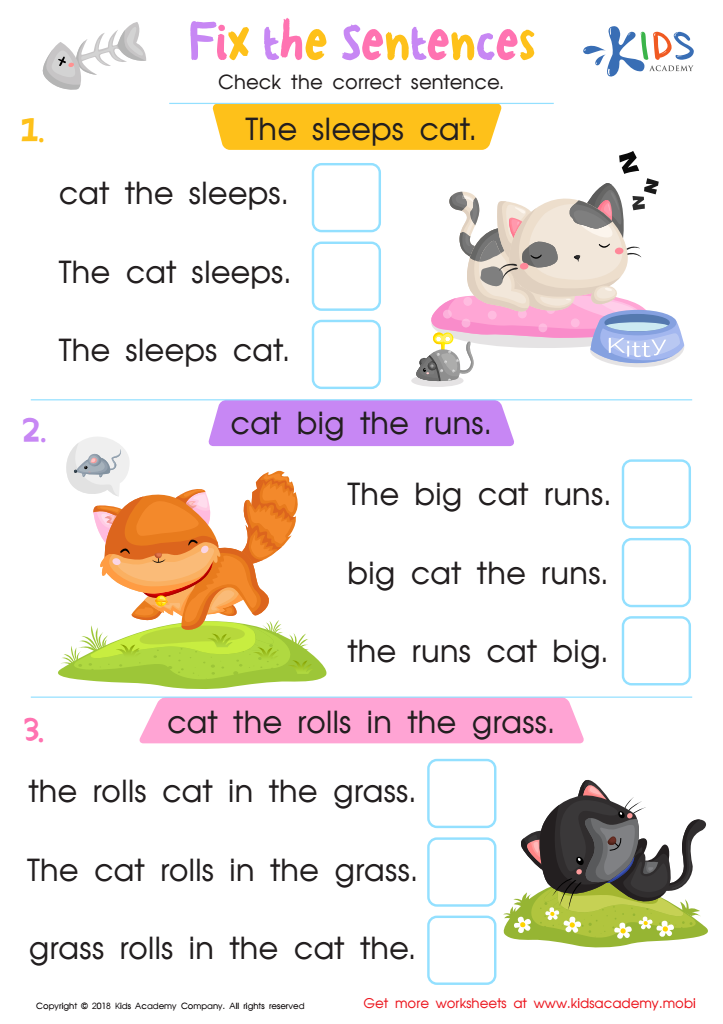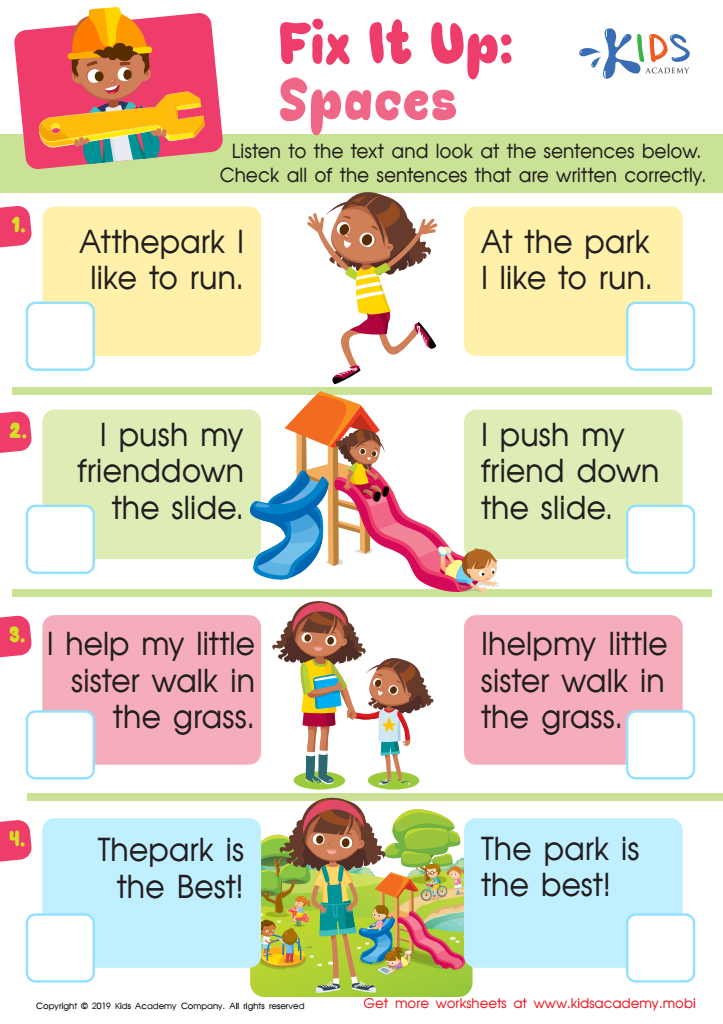Punctuation usage Writing Worksheets for Ages 4-9
3 filtered results
-
From - To
Enhance your child's writing skills with our engaging Punctuation Usage Writing Worksheets designed for ages 4-9! These worksheets make learning about punctuation fun and interactive, helping young learners understand crucial concepts like periods, commas, question marks, and exclamation points. Thoughtfully crafted to accommodate various skill levels, each worksheet encourages children to practice punctuation through creative exercises, games, and guided prompts. Perfect for classroom settings or at-home learning, our resources foster essential writing confidence and clarity. Empower your child to write with precision and creativity. Download our worksheets today and make punctuation a breeze for your little ones!


Fix the Sentences Worksheet


Fix Spaces Worksheet


How to Capitalize Worksheet
Punctuation is a fundamental aspect of writing that significantly impacts a child's ability to communicate effectively. For children aged 4-9, punctuation serves as the traffic signals of language; it guides readers through texts, indicating pauses, stops, and intonations. Understanding punctuation helps children to convey their thoughts clearly and follow the same in others' writing.
Parents and teachers should care about punctuation usage because it fosters comprehension and expression. As children learn to read and write, proper punctuation assists in making sense of sentences, thereby promoting engagement with texts. Without punctuation, written language would become chaotic and confusing.
Moreover, exposure to punctuated writing encourages critical thinking skills. Kids can learn not just the ‘how’ but also the ‘why’ behind sentence structure, which enhances their writing and comprehension abilities.
Additionally, developing these skills in early age sets a strong foundation for future literacy. Children who grasp punctuation rules at a young age are often more confident writers and speakers. Lastly, encouraging punctuation usage creates an exciting learning environment where children feel empowered to express their thoughts creatively. Thus, investing effort in teaching punctuation is crucial for any caregiver aiming to nurture confident, articulate, and effective communicators.
 Assign to My Students
Assign to My Students



















